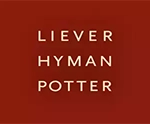WASHINGTON, D.C. – The U.S. Consumer Product Safety Commission (CPSC), the National Fire Protection Association (NFPA) and Maryland’s Office of the State Fire Marshal are helping consumers give the gift of a safe holiday home. Each November and December, thousands of consumers are injured and millions of dollars in property losses are reported as a result of falls, fires, and other incidents associated with holiday decorations.
Since 2009, the estimated number of holiday decoration-related injuries has increased at a rate of 1,000 per year, from 12,000 in 2009, to 13,000 in 2010, to 14,000 in 2011. Between 2008 and 2010, property losses from Christmas tree fires have increased from an estimated $18 million to $19 million. Candle-related fires during this same period resulted in reports of 74 deaths and $347 million in property losses.
“Make sure you water your Christmas tree frequently, use holiday lights that are tested and certified and safe and not damaged, use candles carefully, and do not put a frozen turkey into a deep fryer,” said CPSC Chairman Inez Tenenbaum. “We want consumers to avoid fires and injuries by adding “safety” to their holiday checklist.”
Common incident scenarios involve fires from dried-out evergreen trees and clippings, burns from open-flame candles and falls while attempting to hang holiday decorations. Use CPSC safety tips as a guide to help prevent these and other incidents this season.
“Christmas and the days around it are typically some of the top days for home fires,” said Greg Cade, division director of Government Affairs for NFPA. “With an increased fire risk around winter holidays, following safety tips at this time of year is especially important to prevent fires.”
“Holidays are a time of celebration with family and friends,” stated Maryland State Fire Marshal William E. Barnard. “However, fire and life safety is everyone’s responsibility; by testing smoke alarms and carbon monoxide detectors, keeping exits clear of obstructions, monitoring water levels for live trees, staying with food while it is cooking, and following basic safety guidelines involving open flame devices such as candles and fireplaces, we can all avoid injury or death from fire.”
The above CPSC press release was provided by Adam K. Levin, attorney for the Reading, Pennsylvania personal injury law firm of Liever, Hyman & Potter which limits their practice to medical malpractice, car, truck and motorcycle accidents, nursing home neglect, and work injuries. Serving Berks, Schuylkill and surrounding counties for over 50 years.
From the desk of Adam K. Levin, Esquire

